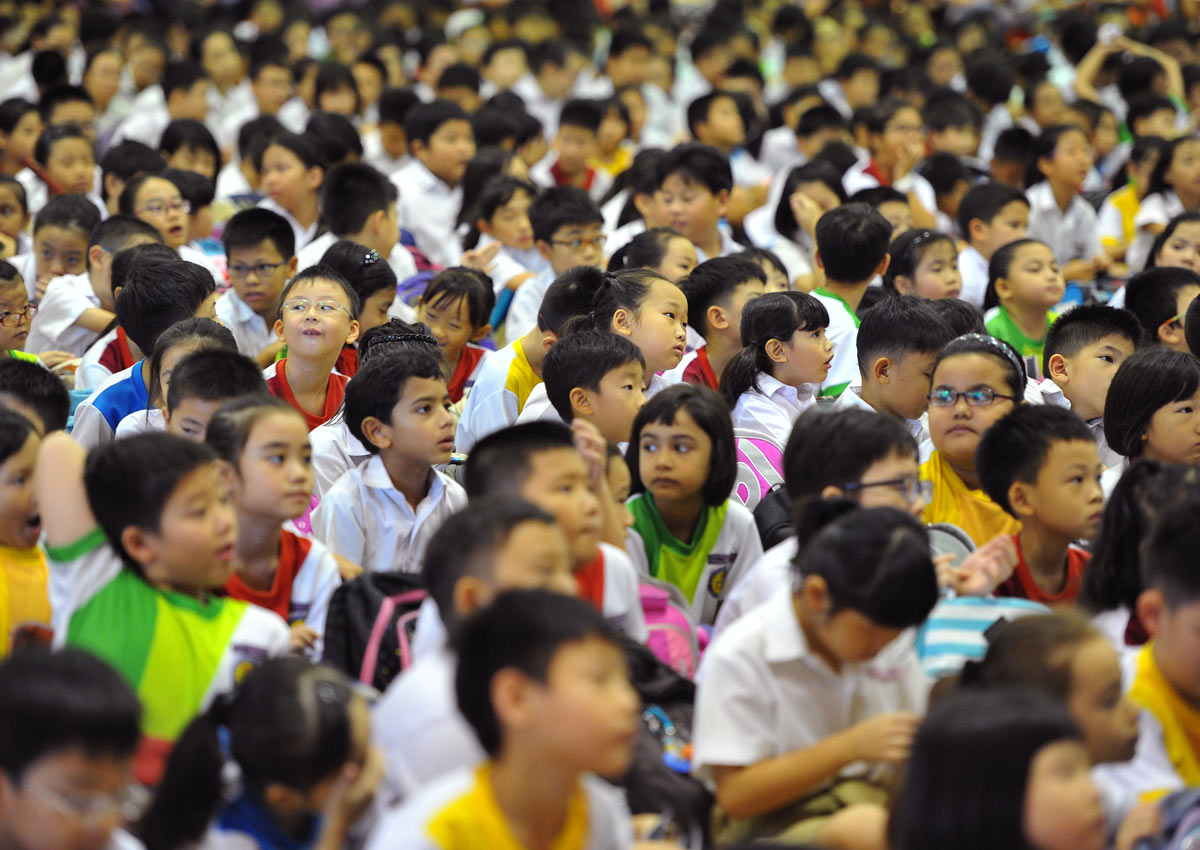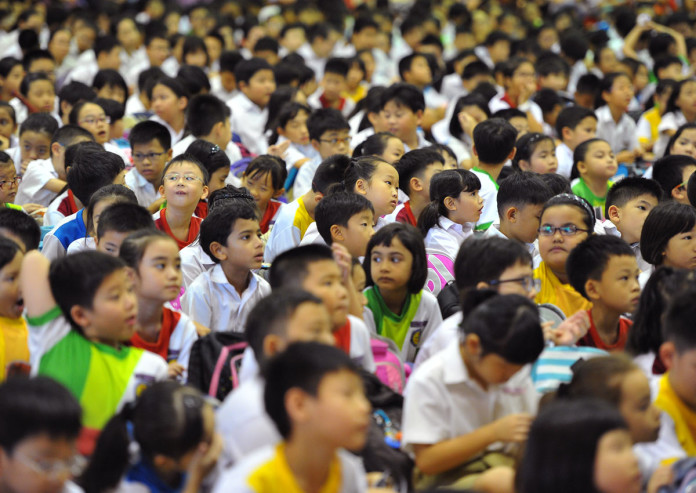It was a long wait, but in July, the Ministry of Education (MOE) finally announced a major change in the PSLE scoring system.
Students will no longer be rated for their performance relative to their peers.
Instead, the new system will enter into force in 2021 to encourage students to focus on their own learning rather than competition.
The current T-score system will be called the Achievement Level (AL) 8-score series, while the secondary 1-year secondary exam scores will be the sum of the AL subjects for the four subjects.
Hoping that the new system, parents will stop pushing their children to chase the last mark, rather than sending their tuition, encourage them to pursue sports or art, and cultivate the creativity and human skills they need in a turbulent, Determine the future.
But even though the announcement of the reforms, the ministry said another key policy is under review, the Direct Entry (DSA) program, which also aims to encourage students to go beyond smartphones.
These changes are expected to be announced in the next year, the new plan in the next few years to implement.
In 2004, the DSA was introduced, allowing secondary schools to expand their admission criteria beyond the PSLE score.
For example, even before PSLE results come out, schools can allow students to perform well in sports or art. Last year, a total of 126 schools enrolled 2,700 students through this program.
The Ministry of Education said it intends to broaden the DSA’s opportunities for students with more specific strengths in more schools, but also “strengthens the focus of DSA” to better identify specific areas of talent and achievement, rather than the general academic capacity reflected in PSLE.
Over the years, the program has been criticized as a channel to ensure that students in the most sought-after comprehensive planning schools bypass the O-level.
There are also complaints about the top schools that use it to retain the best academic talent.
Obviously, the DSA program has become another way of examing smart, academically bright students in the early days, before PSLE gets the premier place in the school.
This contradicts the core objectives of the DSA program, which means giving those who have other talents the chance to shine.
Hopefully, these changes will be sufficient.
But the PSLE and DSA reforms are just two parts of a bigger shift in the opportunity to expand the opportunities for children to discover their interests and talents.
Over the past few years, a number of deliberate changes have been made at all levels – from primary schools to tertiary institutions.
The results of national examinations, such as PSLE, have been released, with no top scorer being highlighted.
More schools have developed programs that foster interest in the fields of theater and dance.
The Ministry of Education is paying more attention to outdoor education. Under the Syllabus for Physical Education launched in 2014, 10 to 20 percent of primary and secondary school curricula are left to them.
As part of the new National Outdoors Adventure Education Master Plan, from 2020 onwards, all students will participate in the three cohort camps.
This shift also takes place in higher education.
Polytechnics and universities are expanding their capacity-based enrollment to allow students with incomplete results but show passion and interest to enter their chosen courses.
This is related to the broader SkillsFuture program, which advocates mastery of skills and is just a collection of eligibility.
However, even if the Ministry shows political will to slaughter more sacred cows in education, there will be no transition to more comprehensive education unless parents play a role.
I reminded the Ministry of Education of the announcement a few years ago, in the form of evaluation of primary schools to replace the examination of junior students.
Some parents entered the panic mode and began to buy expired exam papers for top primary schools.
If we continue this path, Singapore’s first position in the international benchmark will be meaningless.
As former Minister of Education Tseng Reed warned, this narrow focus on performance and exams could lead to a “spiraling paper chase”, and we will develop those who excel in exams but lack the ability to accept the future.
Bold reform of the educational system requires the collective will and action of employers, teachers, parents and students.
Parents, instead of focusing on grades, will need to recognize the unique strengths of their children and on their basis; employers will need to go beyond degrees and be recruited on the basis of skills; teachers should emphasize students’ all-round development.
The Ministry of Education must continue to adjust, or even abolish the policy of obstruction.
sandra@sph.com.sg

This article was first published on December 28, 2016.
Get a copy of The Straits Times or go to straitstimes.com for more stories.







